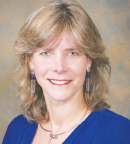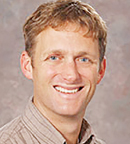MANY health-care experts disagree about when screening mammography is appropriate and for whom. That’s what Women Informed to Screen Depending on Measures of Risk (WISDOM) seeks to remedy. The University of California (UC) Health study aims to uncover whether annual mammograms really are the best way to screen for breast cancer or whether a more personalized approach—driven by the data attached to each woman’s genetic makeup, family history, and risk factors—could deliver better results.

Laura Esserman, MD, MBA
“We need better answers for screening,” said Laura Esserman, MD, MBA, Professor of Surgery and Director of the Carol Franc Buck Breast Care Center at the UC San Francisco (UCSF) Helen Diller Family Comprehensive Cancer Center, who is leading the study. “There is so much controversy around screening, and women get caught in the middle.”
WISDOM Design
WISDOM is the result of a 5-year, $14.1 million grant from the Patient-Centered Outcomes Research Institute (PCORI). It is the first study conducted through Athena Breast Health Network, a collaboration of the five UC medical centers to drive innovation in breast cancer prevention, screening, and treatment.
WISDOM is now recruiting 100,000 women from throughout California. Participants do not need to receive their care from a UC Health facility. To join, a woman fills out an extensive online questionnaire that covers health and family histories, and each is invited to be randomized to join either the personalized or annual screening arm of the study. Women in the annual screening arm will have annual mammograms, and those in the personalized arm will be assessed for their risk of developing breast cancer and given a genetic test.

Sandy Borowsky, MD
“We’ve learned so much about how an individual’s genes impact [his or her] cancer risk, and I think we can use that information to improve health outcomes today,” said Sandy Borowsky, MD, Professor in the Department of Pathology and Laboratory Medicine and Principal Investigator on the study at UC Davis. “Advanced sequencing technology has made this analysis fast, accurate, and inexpensive.”
Study Methods
Those with the highest personal risk will receive recommendations to begin screening at an earlier age, have mammograms more often, and continue screening until they are older. Those with the lowest risk will begin screening later, screen less frequently, and stop screening earlier. The study anticipates the majority of women will fall into the lowest risk category, although no woman will be screened less often than the U.S. Preventive Services Task Force guidelines recommend.
Dr. Esserman said the study is designed to minimize the incidence of false-positive mammogram results as well as of cancers detected between mammogram screenings or at later stages. Women with known high-risk genetic mutations will be screened according to the National Comprehensive Cancer Network (NCCN®) Guidelines.
In addition to finding out whether personalized screening is as safe as annual screening, the study will work to determine whether it causes fewer harms and whether women accept the approach. Dr. Esserman said personalized screening may also prove to help prevent aggressive cancers by detecting genetic risk earlier and using proven drugs known to lower the risk.
For more information or to become a study participant, visit www.wisdomstudy.org.

